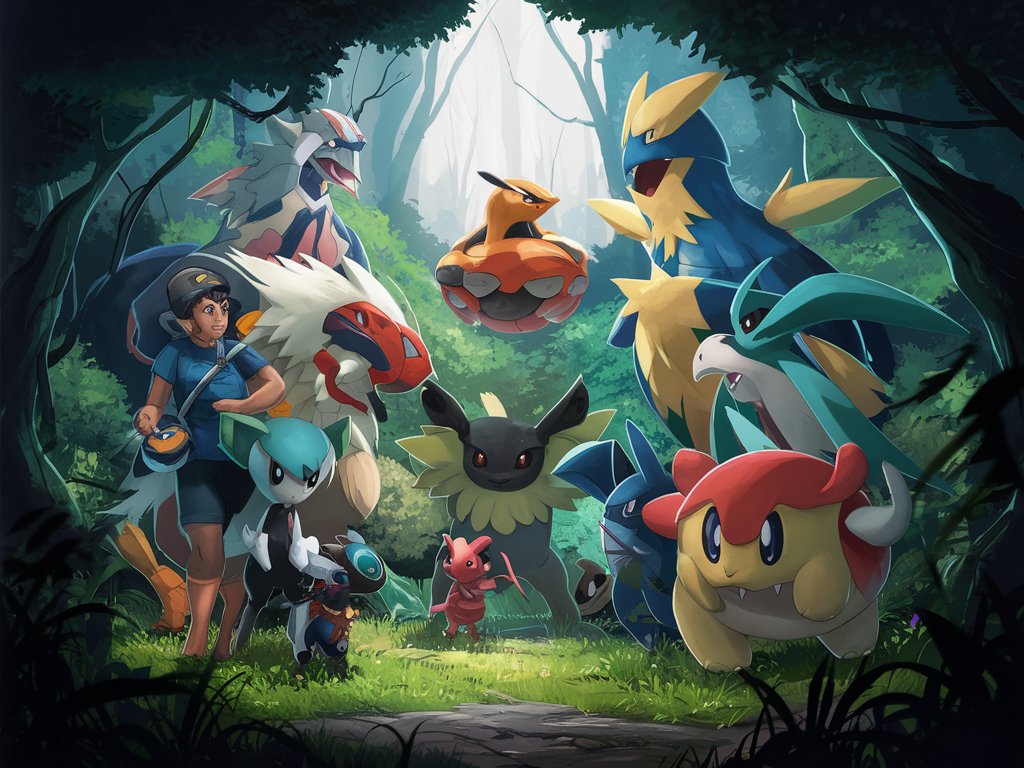The world of manhwa (Korean comics) is brimming with fantastical adventures and powerful heroes. But what if the thrill wasn’t just about the hero’s journey, but the journey of creation? “Raising a Newbie to Grind Them” is a unique power fantasy story. It focuses on the bond between an experienced adventurer and a new recruit. The experienced adventurer is training the new recruit to become a strong warrior.
Understanding the Learning Curve
Before diving into specific strategies, it’s essential to understand the concept of the learning curve. The learning curve represents the rate at which a person acquires new knowledge or skills over time. At first, it’s hard for beginners, but they quickly learn the basics. Then, it gets easier as they learn more.
The Steep Beginning
At the start, enthusiasm and motivation are high. You absorb new information rapidly, and progress is visible. This stage is crucial for building a solid foundation.
The Plateau
As you advance, you may hit a plateau where progress slows, and improvement seems minimal. Many people get discouraged at this stage, which is a natural part of the learning process.
The Advanced Stage
After pushing through the plateau, you enter the advanced stage, where you fine-tune your skills and gain expertise. Progress is slower but more meaningful as you refine and master the nuances of your skill.
Also Read: AutoTrader Canada Ontario: Pre-Owned Vehicles!
Strategies for Rapid Skill Acquisition
To grind your way to expertise, you need a well-structured approach. Here are some proven strategies to help you accelerate your learning process:
1. Set Clear Goals
Setting clear, achievable goals is the first step in any learning journey. Goals provide direction and motivation, helping you stay focused and track your progress.
SMART Goals: Ensure your goals are Specific, Measurable, Achievable, Relevant, and Time-bound. For example, instead of saying, “I want to learn guitar,” set a goal like, “I want to learn to play five songs on the guitar in three months.”
2. Break Down the Skill
Breaking down the skill into smaller, manageable parts makes it easier to learn and practice. Chunking is a technique that helps you focus on one thing at a time, making it easier to remember.
Microlearning: Focus on learning small, specific pieces of information or skills. This approach can be particularly effective for complex skills like coding or language learning.
3. Consistent Practice
Consistent practice is crucial for skill acquisition. It’s better to practice a little every day than to cram all your learning into one session.
The 20-Hour Rule: Popularized by Josh Kaufman, this rule suggests that you can acquire a new skill with just 20 hours of focused practice. Break these 20 hours into manageable sessions to maintain consistency.
4. Get Feedback
Feedback is essential for improvement. It helps you identify mistakes, correct them, and refine your skills. Seek feedback from mentors, peers, or even through self-assessment.
Constructive Criticism: Embrace constructive criticism and use it to make adjustments. Feedback should be specific and actionable to be effective.
5. Use Multiple Resources
Diversifying your learning resources can provide different perspectives and reinforce your understanding. Use books, online courses, videos, and practice exercises to get a well-rounded education.
Online Platforms: Websites like Coursera, Udemy, and Khan Academy offer courses on various subjects, often taught by industry experts.
6. Teach Others
Teaching is one of the most effective ways to solidify your understanding of a topic. Explaining concepts to others forces you to clarify your thoughts and identify any gaps in your knowledge.
Peer Learning: Engage in study groups or forums where you can discuss and teach each other.
Overcoming Common Challe
Every learning journey has its challenges. Here are some common obstacles and strategies to overcome them:
1. Lack of Motivation
Staying motivated over the long term can be challenging. To keep your motivation high:
· Find Your Why: Understand why you want to learn the skill and remind yourself of this purpose regularly.
· Celebrate Milestones: Recognize and celebrate small achievements to maintain a sense of progress.
2. Time Management
Balancing learning with other responsibilities requires effective time management.
· Schedule Learning Sessions: Dedicate specific times in your calendar for learning and stick to them.
· Prioritize Tasks: Use techniques like the Eisenhower Matrix to prioritize your tasks and focus on what’s most important.
3. Information Overload
With so much information available, it’s easy to feel overwhelmed.
· Curate Your Sources: Choose a few high-quality resources and stick to them. Avoid jumping from one source to another without fully exploring them.
· Focus on Fundamentals: Concentrate on mastering the basics before moving on to advanced topics.
A Must-Read for Fans of Fantasy and Adventure
“Raising a Newbie to Grind Them” is a breath of fresh air for fans of fantasy and adventure manhwa. It offers a captivating twist on the power fantasy trope, emphasizing the importance of mentorship and the joy of overcoming challenges. With its engaging characters, innovative training sequences, and beautiful artwork, this manhwa is a must-read for anyone seeking a story that’s both heartwarming and action-packed.
Tools and Techniques for Effective Learning
Leveraging the right tools and techniques can enhance your learning experience. Here are some popular methods:
1. Spaced Repetition
Spaced repetition involves reviewing information at increasing intervals, which helps reinforce memory and retention. Apps like Anki and Quizlet use this technique effectively.
2. Deliberate Practice
Deliberate practice involves focused and intentional practice with the goal of continuous improvement. It requires:
· Setting Specific Goals: Focus on specific aspects of the skill you want to improve.
· Getting Immediate Feedback: Adjust your practice based on feedback.
3. Mind Mapping
Mind mapping is a visual tool that helps organize information, making it easier to understand and recall. It can be particularly useful for brainstorming and planning.
4. Gamification
Gamification involves incorporating game elements into the learning process to make it more engaging. Apps like Duolingo and Khan Academy use gamification to motivate learners through rewards and progress tracking.
Case Studies and Real-Life Examples
Learning from others’ experiences can provide valuable insights. Here are a few case studies of individuals who successfully transitioned from newbies to experts:
Case Study 1: Tim Ferriss – The 4-Hour Chef
Tim Ferriss, author of “The 4-Hour Chef,” used the principles of rapid skill acquisition to learn cooking in record time. His approach included deconstructing the skill, practicing the most critical aspects, and using feedback to refine his techniques.
Case Study 2: Josh Kaufman – The First 20 Hours
Josh Kaufman, in his book “The First 20 Hours,” outlines how he learned several new skills, including yoga and programming, by dedicating just 20 hours of focused practice to each. His method emphasizes breaking down the skill, consistent practice, and seeking feedback.
Maintaining Long-Term Growth
Once you’ve moved past the newbie stage, maintaining long-term growth requires ongoing effort and dedication. Here are some tips to sustain your progress:
1. Continue Learning
Even after reaching an advanced level, there’s always more to learn. Stay curious and keep exploring new aspects of your skill.
2. Set New Challenges
Challenge yourself with new goals to prevent stagnation. These can be more complex projects or different facets of the skill.
3. Stay Connected
Engage with communities and networks related to your skill. These connections can provide support, inspiration, and opportunities for collaboration.
4. Reflect and Adjust
Regularly reflect on your progress and adjust your learning strategies as needed. As you advance, you may need to modify what initially worked.
Conclusion
Raising a newbie to grind them into an expert is a journey that requires dedication, strategy, and resilience. To learn faster and become an expert, it is important to set goals. Breaking down the skill into smaller parts can help make it more manageable. Regular practice is essential to improve. Feedback from others can provide valuable insight.
Using the correct tools can also aid in the learning process. To keep growing and improving, it’s important to overcome challenges and focus on long-term goals. This will help you continue to develop your skills and stay on track towards success.







